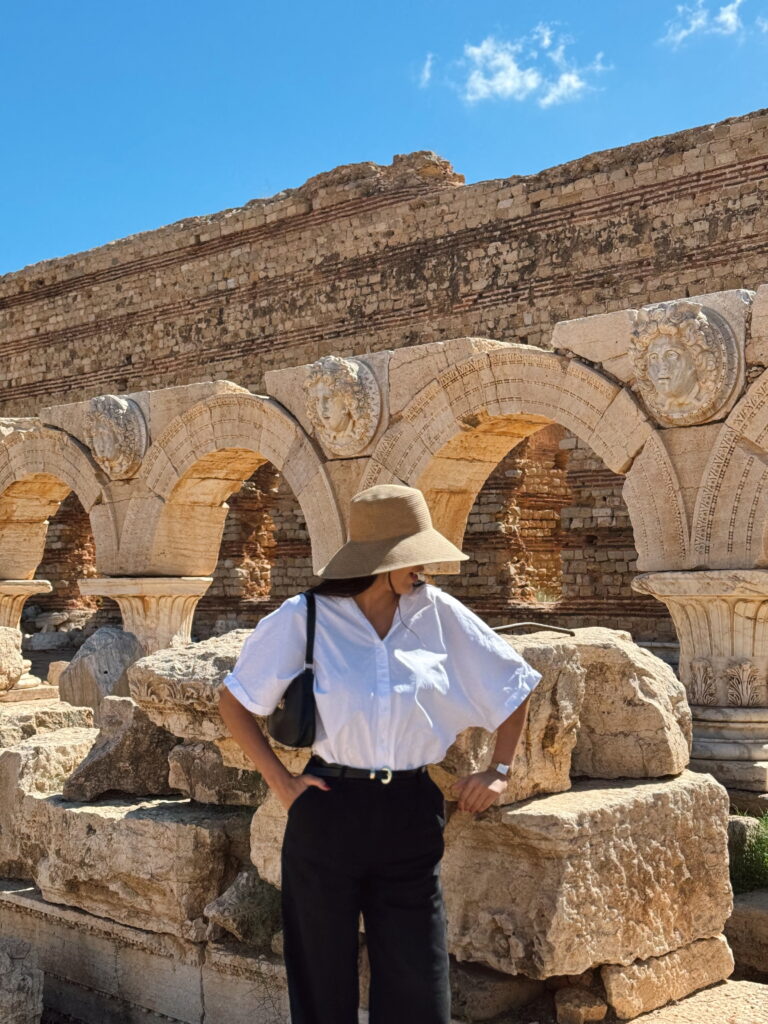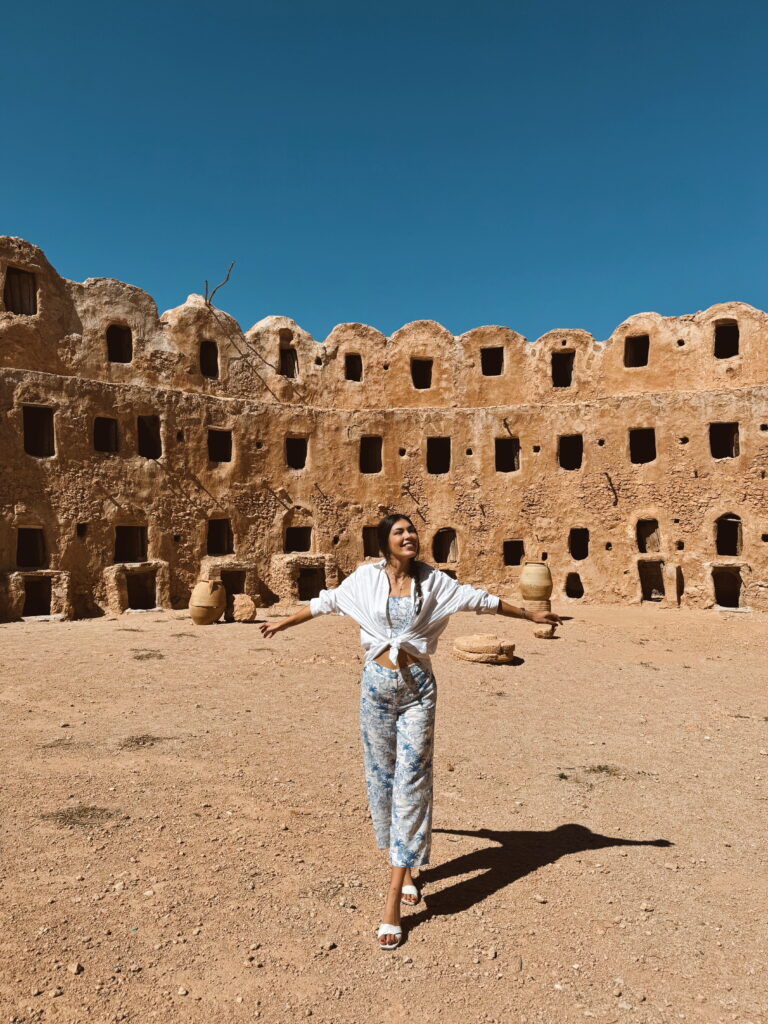Discovering Libya Through Hospitality and Hidden Treasures
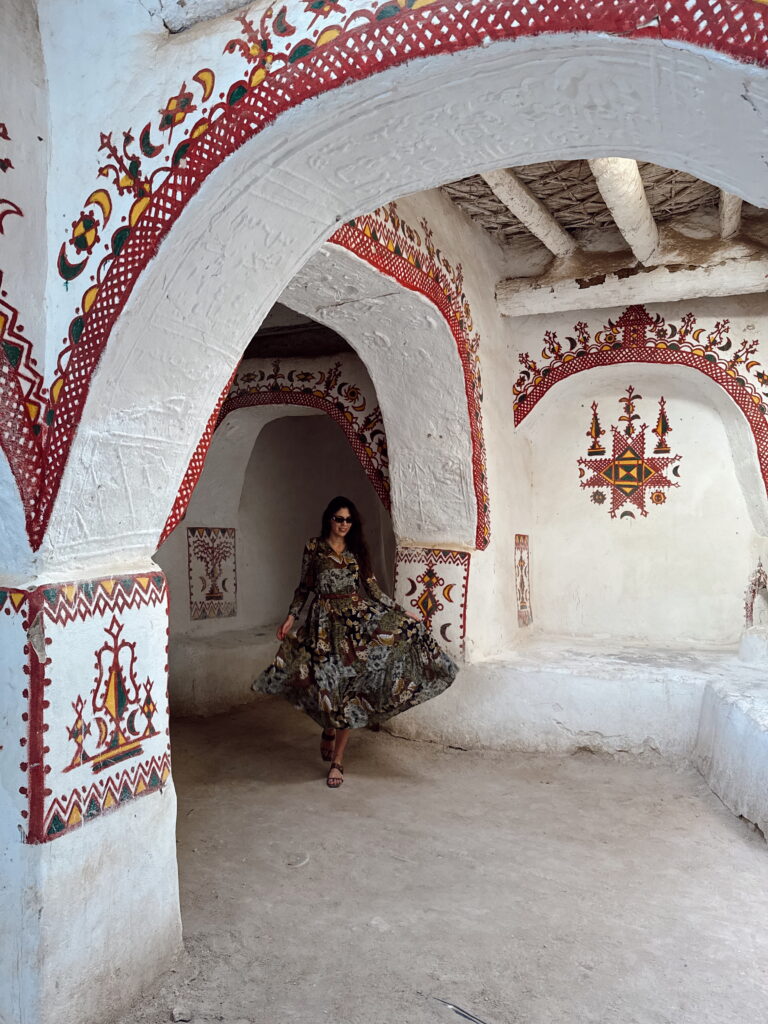 Interview by Žikica Milošević
Interview by Žikica Milošević
Jovana Kvržić, one of the leading travel bloggers from the former Yugoslav region, recently visited Libya and introduced her followers to an entirely new world. She shares her experiences with our readers in the special InFocus Libya edition of Diplomacy&Commerce magazine.
How did your Libyan adventure come about? What attracted you to it?
My Libyan adventure happened as part of an agreement with my friends, avid travellers who often explore lesser-known and less safe destinations with me. We heard Libya reopened to tourists after many years and that getting a visa was no longer impossible, so we dove into planning. During the planning phase, a friend of mine, who was in charge of contacting a local agency, came across a man named Sulejman, who is half-Serbian and half-Libyan. Sulejman played a significant role in our decision to go to Libya and encouraged us not to believe everything we read in the media. We travelled through Libya with a local agency, as tourists still need a guide throughout the trip, and special permits are needed to travel between cities.
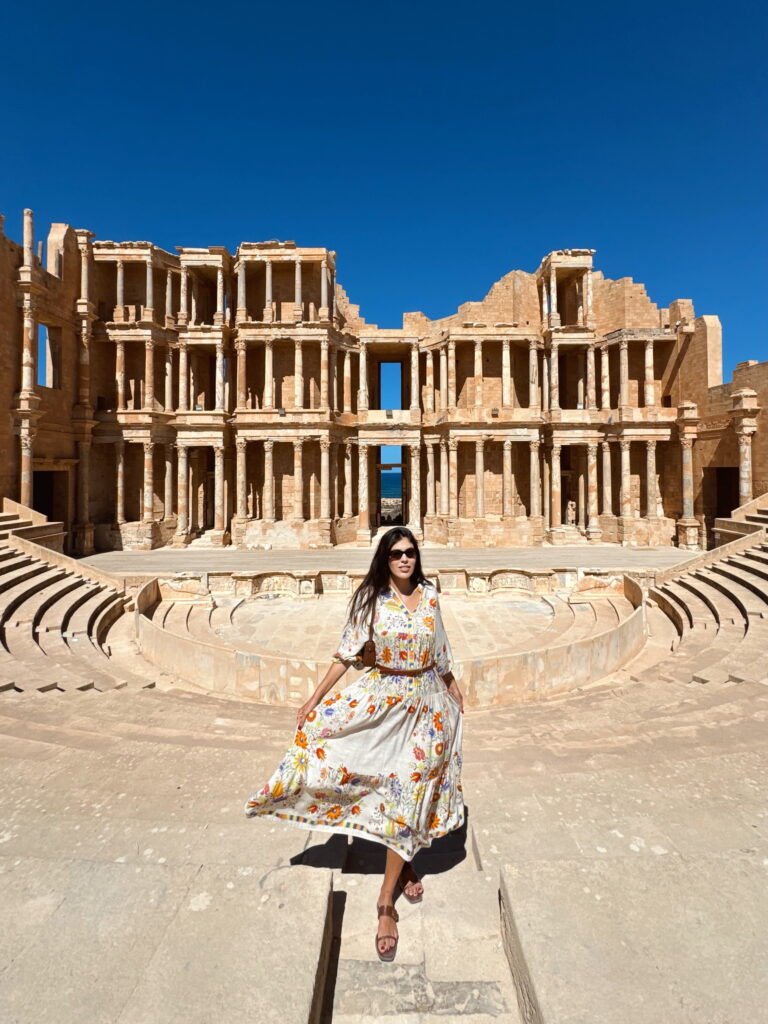 What did you like the most about Libya (key question—places, food, etc.)?
What did you like the most about Libya (key question—places, food, etc.)?
For me, the most beautiful parts of Libya were the traditional city of Ghadames and the ancient cities of Sabratha and Leptis Magna. It’s simply incredible that these sites remain so well-preserved despite the country’s difficult situation and are still free from mass tourism. On our visit, the only other tourists were a small group from Russia, whom we met at every site. This enhanced the experience, as there were no crowds or inappropriate tourist behaviour.
As for the food, Libyan cuisine is diverse and, at times, similar to ours. I enjoyed everything I tried, and picking just one favourite is hard. If I had to choose, I’d say the Libyan sweets were the highlight.
Libyan cuisine is diverse and, at times, similar to ours, so I enjoyed everything I tried, making it hard to single out just one thing. If I had to choose, it would be the Libyan sweets
Do you find similarities between the Serbian and Libyan people and cultures?
Libyans are hospitable people who love foreigners and are genuinely delighted whenever they see us. In the Arab world, guests are considered a gift from God, and we were truly welcomed that way everywhere we went. Everyone offered us tea, coffee, and sweets; some even invited us to dinner in their homes. This openness and hospitality are the most significant similarities between our peoples. Interestingly, many Libyans speak a bit of our language because many studied in Serbia, and many people from our region have worked and continue to work in Libya. We also met our ambassador in Libya, who confirmed that he feels great as a foreigner and has no issues.
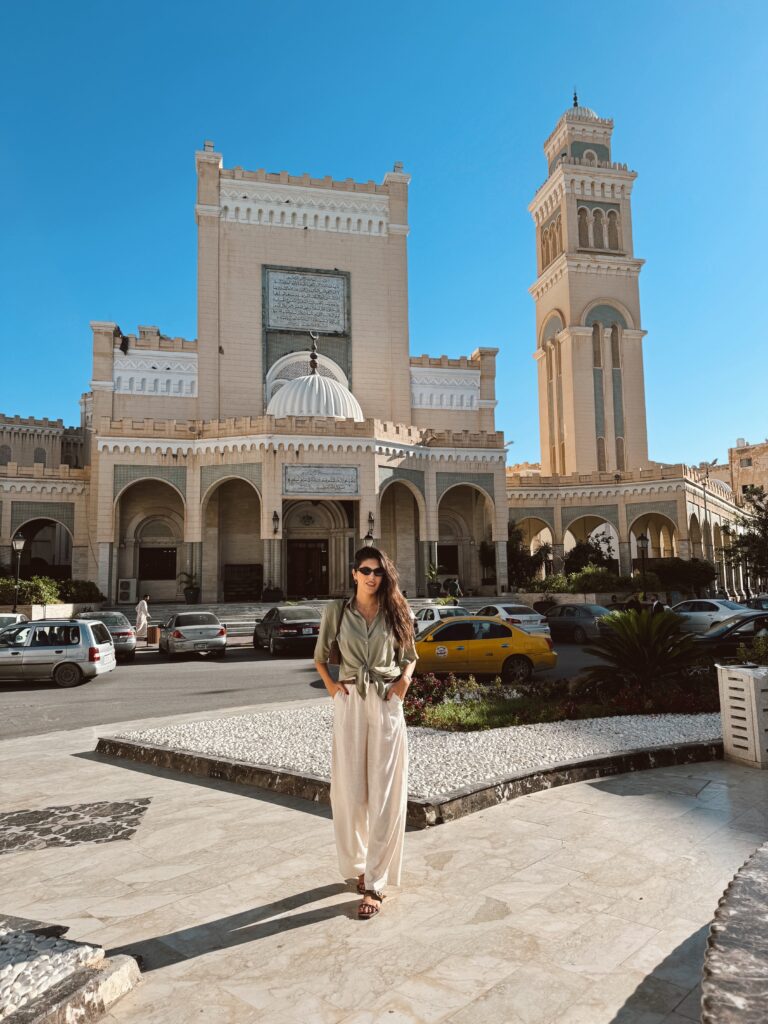 Do you think Libya could become the “next big thing” in tourism once more people discover it?
Do you think Libya could become the “next big thing” in tourism once more people discover it?
As more travellers are drawn to off-the-beaten-path destinations, I’m confident that Libya will initially appeal to those seeking a bit of adrenaline and eventually attract all kinds of tourists. If the security situation in the country remains stable, I foresee a bright future for Libyan tourism, which the country truly deserves. Libya is an affordable destination with decent hotels and well-maintained roads, meaning the tourism infrastructure is already well-established.
Libyans are incredibly hospitable people who love foreigners and were genuinely delighted to see us. In the Arab world, guests are considered a gift from God, and we were truly welcomed that way everywhere we went
